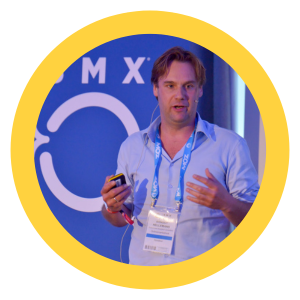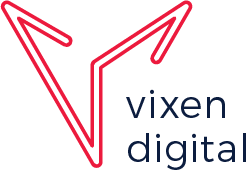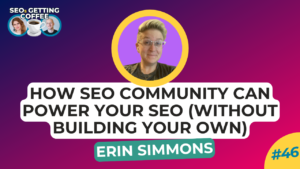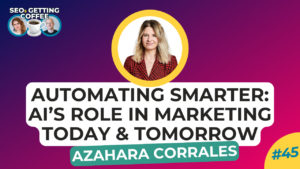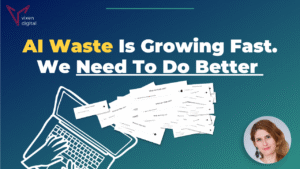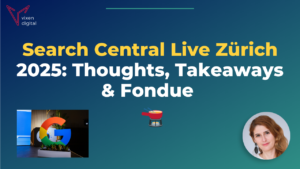In this episode of SEO’s Getting Coffee, Emina and Sean are joined by the legendary Arnout Hellemans, a freelance SEO, PPC and analytics consultant with decades of experience in digital marketing and founder of OnlineMarkethink. Together, they explore the evolution of search, the role of cognitive load, and what the future of SEO might look like in an AI-driven world.
It’s a conversation packed with history, psychology, and plenty of practical advice for marketers trying to navigate what’s next.
Watch Video
The Future of Search & What Really Matters | SEOs Getting Coffee Ep.43
The Early Days of SEO: Simpler Times
Arnout took us back to the early 2000s, when SEO was still the Wild West. With no SEO tools like Screaming Frog or Sitebulb, SEOs relied on Yahoo’s Open Site Explorer and a lot of trial and error. Back then, a few good links and some on-page SEO tweaks were often all it took to achieve a high ranking.
But as with any system, it was open to abuse, and eventually, Google’s Penguin and Panda updates forced the industry to evolve.
From SEO to CRO: Why Conversion Matters
Frustrated with SEO’s overemphasis on rankings and traffic, Arnout shifted his focus to conversion rate optimisation (CRO) and analytics. His insight was simple but powerful: it’s not just about getting people to your site, it’s about helping them complete the action they came for.
He became fascinated with how people think and behave online, diving deep into psychology, cognitive load, and friction in digital experiences.
Removing Friction: The Real Job of Marketers
Arnout argues that much of SEO and UX comes down to one thing: removing friction. From clunky checkout flows to broken links and slow-loading pages, every barrier you remove brings users closer to their goal and helps businesses succeed.
In his view, this principle applies not only to websites but to search itself. Google has always been in the business of reducing cognitive load, giving users faster answers with less effort.
The Rise of AI Overviews: A Natural Evolution
The discussion shifted to AI Overviews and the broader impact of AI on search. Arnout believes AI Overviews are just another step in the same journey: reducing cognitive effort. Whether through snippets, people-also-ask boxes, or AI-generated summaries, the goal is the same: to give users the answer they need quickly.
The challenge for businesses is understanding their place in this new landscape, where AI tools are increasingly controlling the flow of information.
Will AI Kill Organic Search?
Emina and Sean raised the question everyone’s asking: is Google moving towards a world where organic results disappear entirely in favour of AI answers and paid placements?
Arnout’s take is pragmatic. Google’s core revenue comes from Google Ads; they’re unlikely to sacrifice that. But we may see hybrid models where chat interfaces and AI recommendations coexist with monetised search experiences. The key for businesses will be staying visible within these evolving spaces.
The Privacy Trade-Off
Next, the episode tackled the data behind AI and personalisation. Arnout shared how tools like Chrome gather extensive behavioural data, enabling future “search agents” to tailor results at an individual level.
While powerful, this also raises ethical questions about privacy, data ownership, and the growing influence of tech giants over how we access information.
Brand Building: The Long-Overlooked SEO Strategy
Arnout made a strong case for shifting SEO focus away from short-term clicks and towards long-term brand building. Many companies, he argues, have spent years chasing last-click revenue without investing in the brand stories that will make them memorable or relevant in AI-driven search.
His advice:
- Invest in PR and storytelling.
- Create content that fills gaps; things people are actually searching for but can’t yet find.
- Focus less on keyword volume, more on usefulness and uniqueness.
The Skills SEOs Need for the Future
Looking ahead, Arnout outlined three key growth areas for SEOs:
- Psychology and User Behaviour in SEO
Learn about cognitive load, decision-making, and how people actually interact online. Recommended reading includes Don’t Make Me Think and Thinking, Fast and Slow. - PR and Brand Storytelling
Being visible in an AI world means being talked about, cited and remembered. PR and digital storytelling are critical. - Analytics
Even as tracking becomes more complex, measuring micro-conversions and user behaviour remains essential. Most companies still struggle with this.
A sprinkle of technical SEO knowledge is still necessary, particularly for crawling and indexation, but the human side of search is where the biggest opportunities lie.
Room 404: What Arnout Wants to Banish
For his Room 404 submission, Arnout chose to highlight a common challenge: clients who hope for results but are hesitant to invest the time, effort or strategy required to achieve them. It’s an issue many in the industry can relate to, where expectations and readiness aren’t always aligned. Success in SEO, as Arnout reminded us, is a shared journey that works best when everyone is committed to the process.
Emina added her own twist: let’s also throw in energy-draining agencies for good measure.
Final Thoughts
This episode is a reminder that while tools, algorithms, and AI interfaces may change, the fundamentals remain: good marketing is about people. Understanding their needs, reducing their frustration, and building genuine relationships will always matter; no matter how search evolves.
As Arnout says: SEO should be less about chasing rankings and more about creating experiences that truly help people.
For more insights and in-depth conversations on the latest in SEO and digital marketing strategies, stay stuned for upcoming episodes of “SEOs Getting Coffee.” Subscribe to our channel for regular updates and expert opinions.
Connect with Arnout Hellemans
